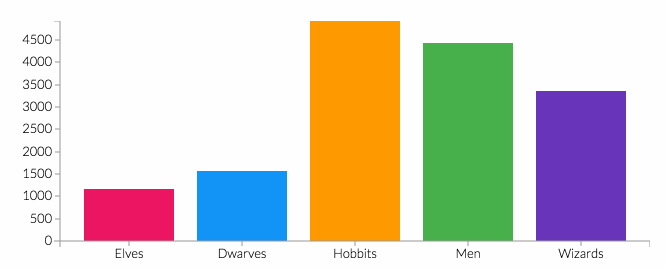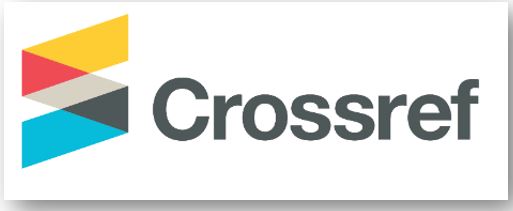The Effect of Foreign Direct Investment (FDI), Zakat Distribution and Government Spending on Economic Growth with Human Development Index as Moderating Variable
DOI:
https://doi.org/10.61231/miftah.v3i2.375Keywords:
FDI, Penyaluran Zakat, Belanja Pemerintah, IPM dan Pertumbuhan EkonomiAbstract
This study aims to determine the effect of foreign direct investment, zakat distribution and government spending on economic growth in Indonesia in 2019-2024 with the Human Development Index as a moderating variable. This type of research is quantitative with a population of all provinces in Indonesia. Determination of the Saturated Sampling sample with criteria determined by the researcher so that a sample of 33 provinces was obtained during the observation period (2019-2024). The type of data used is panel data. Using the analysis method used includes descriptive test, stationary test, multiple liner regression test, T test, F test, R2 test, classical assumption test and MRA test. In the Moderated Regression Analysis (MRA) test using Eviews 13 data processing software, the results showed that the government expenditure variable had no effect on economic growth. Based on the MRA test, HDI is able to moderate government spending on economic growth and HDI is not able to moderate the distribution of Zakat on economic growth.
References
Aini. (2023). Analisis Pengaruh Foreign Direct Investment, Inklusi Keuangan Syariah Dan Zakat Terhadap Pertumbuhan Ekonomi Indonesia Tahun 2014-2021 Dengan Indeks Pembangunan Manusia Sebagai Variabel Moderasi. At-Tawassuth: Jurnal Ekonomi Islam, Viii(I), 1–19.
Bawono. (2018). Ekonometrika Terapanuntuk Ekonomi Dan Bisnis Islamaplikasi Dengan Eviews. Lp2m Press.
Hamid, Mariyanti, Anderson, K. (2022). Jurnal Pembanguan Ekonomi Dan Keuangan Daerah Vol 23. No 1 (2022). Jurnal Pembangunan Ekonomi Dan Keuangan Daerah, 23(1), 73–93.
Hidayati, D. N., Oktaviani, A., Aji, F. B., Farhan, M., & Sujianto, A. E. (2022). Distribution Of Zakat, Infaq, Shadaqah Funds And The Human Development Index To Economic Growth. Saudi Journal Of Economics And Finance, 6(12), 431–438. Https://Doi.Org/10.36348/Sjef.2022.V06i12.005
James. (N.D.). Pengantar Ekonomi Makro. Gilad James Mystery School.
Https://Books.Google.Co.Id/Books?Id=Cvg_Eaaaqbaj
Mankiw, Quah, Wilson, P. (2014). Pengantar Ekonomi Mikro Principles Of Economics. Jakarta: Salemba Empat, 476.
Mapossa, J. B. (2018). Analisis Struktur Kovarians Indikator Terkait Kesehatan Pada Lansia Yang Tinggal Di Rumah, Dengan Fokus Pada Rasa Subjektif Terhadap Kesehatan. New England Journal Of Medicine, 372(2), 2499–2508.
Nugraha, Aziz, C. (2021). Metodologi Penelitian Bisnis Dengan Pendekatan Kuantitatif. In Analytical Biochemistry (Vol. 11, Issue 1).
Http://Repositorio.Unan.Edu.Ni/2986/1/5624.Pdf%0ahttp://Fiskal.Kemenkeu.Go.Id/Ejournal%0ahttp://Dx.Doi.Org/10.1016/J.Cirp.2016.06.001%0ahttp://Dx.Doi.Org/10.1016/J.Powtec.2016.12.055%0ahttps://Doi.Org/10.1016/J.Ijfatigue.2019.02.006%0ahttps://Doi.Org/10.1
Permadi, A., Eni Susilowati, Sri Hariyanti, & Dewi Nur Alfa Damayanti. (2023). Causality Of Consumption, Government Expenditure, And Distribution Of Zis Funds (Zakat Infaq And Shodaqoh) On Indonesia’s Economic Growth. Open Access Indonesia Journal Of Social Sciences, 5(5), 846–855. Https://Doi.Org/10.37275/Oaijss.V5i5.180
Qadri, Z. (2022). The Effect Of Government Expenditure, Exchange Rate, Interest Rate, And Budget Deficit On Foreign Debt And Indonesia’s Economic Growth. Https://Repository.Unhas.Ac.Id/Id/Eprint/20445/2/A032192001_Tesis_07-09-2022 1-2.Pdf
Rahmandani, Dewi, P. (2023). Pengaruh Energi Terbarukan, Emisi Karbon, Dan Foreign Direct Investment Terhadap Pertumbuhan Ekonomi Negara Anggota Oki. Jurnal Ilmuah Ekonomi Islam, 9(1), 405–417. Http://Dx.Doi.Org/10.29040/Jiei.V9i1.6962
Ramadhan, R. R., & Setiadi, Y. (2019). Pengaruh Modal Fisik Dan Sumber Daya Manusia Terhadap Indeks Inklusif Di Indonesia. Jurnal Ekonomi Pembangunan, 17(2), 109–124. Https://Doi.Org/10.29259/Jep.V17i2.9797
Riyandono, H. (2008). Ekonomi Ziswaq (Zakat Infaq, Shadaqah, Dan Wakaf). Surabaya: Ifdi Dan Cenforis.
Singh, R. K. (2024, April). Bank Dunia Ramalkan Rekor Buruk Ekonomi Global Pada 2024. Associated Press. Https://Www.Voaindonesia.Com/A/Bank-Dunia-Ramalkan-Rekor-Buruk-Ekonomi-Global-Pada-2024/7433717.Html
Unctad. (2025). Investasi Asing Di Negara Berkembang Turun 2% Pada Tahun 2024, Menandai Tahun Kedua Penurunan. Untrade & Development. Https://Unctad.Org/News/Foreign-Investment-Developing-Economies-Fell-2-2024-Marking-Second-Year-Decline
Widianatasari, & Purwanti, Y. (2021). Pengaruh Kualitas Institusi, Pengeluaran Pemerintah, Dan Foreign Direct Investment Terhadap Pertumbuhan Ekonomi. Ecoplan, 4(2), 86–98. Https://Doi.Org/10.20527/Ecoplan.V4i2.286
Widiastuti, Nur, A. (2022). Dampak Belanja Pemerintah Daerah Terhadap Pertumbuhan Ekonomi Daerah: Studi Kasus Data Panel Provinsi Di Indonesia. Kajian Bisnis Sekolah Tinggi Ilmu Ekonomi Widya Wiwaha, 30(2), 1–16. Https://Doi.Org/10.32477/Jkb.V30i2.394
Wijaya. (2024). Analisis Rasio Pertumbuhan Ekonomi. Cv. Azka Pustaka. Https://Books.Google.Co.Id/Books?Id=Ep8ueqaaqbaj
Downloads
Published
How to Cite
Issue
Section
License
Copyright (c) 2025 Nurul Kholifah Aminatul Itsnaini, Anton Bawono

This work is licensed under a Creative Commons Attribution 4.0 International License.
You are free to:
- Share — copy and redistribute the material in any medium or format for any purpose, even commercially.
- Adapt — remix, transform, and build upon the material for any purpose, even commercially.
- The licensor cannot revoke these freedoms as long as you follow the license terms.
Under the following terms:
- Attribution — You must give appropriate credit , provide a link to the license, and indicate if changes were made . You may do so in any reasonable manner, but not in any way that suggests the licensor endorses you or your use.
- No additional restrictions — You may not apply legal terms or technological measures that legally restrict others from doing anything the license permits.
Notices:
You do not have to comply with the license for elements of the material in the public domain or where your use is permitted by an applicable exception or limitation .
No warranties are given. The license may not give you all of the permissions necessary for your intended use. For example, other rights such as publicity, privacy, or moral rights may limit how you use the material.

















